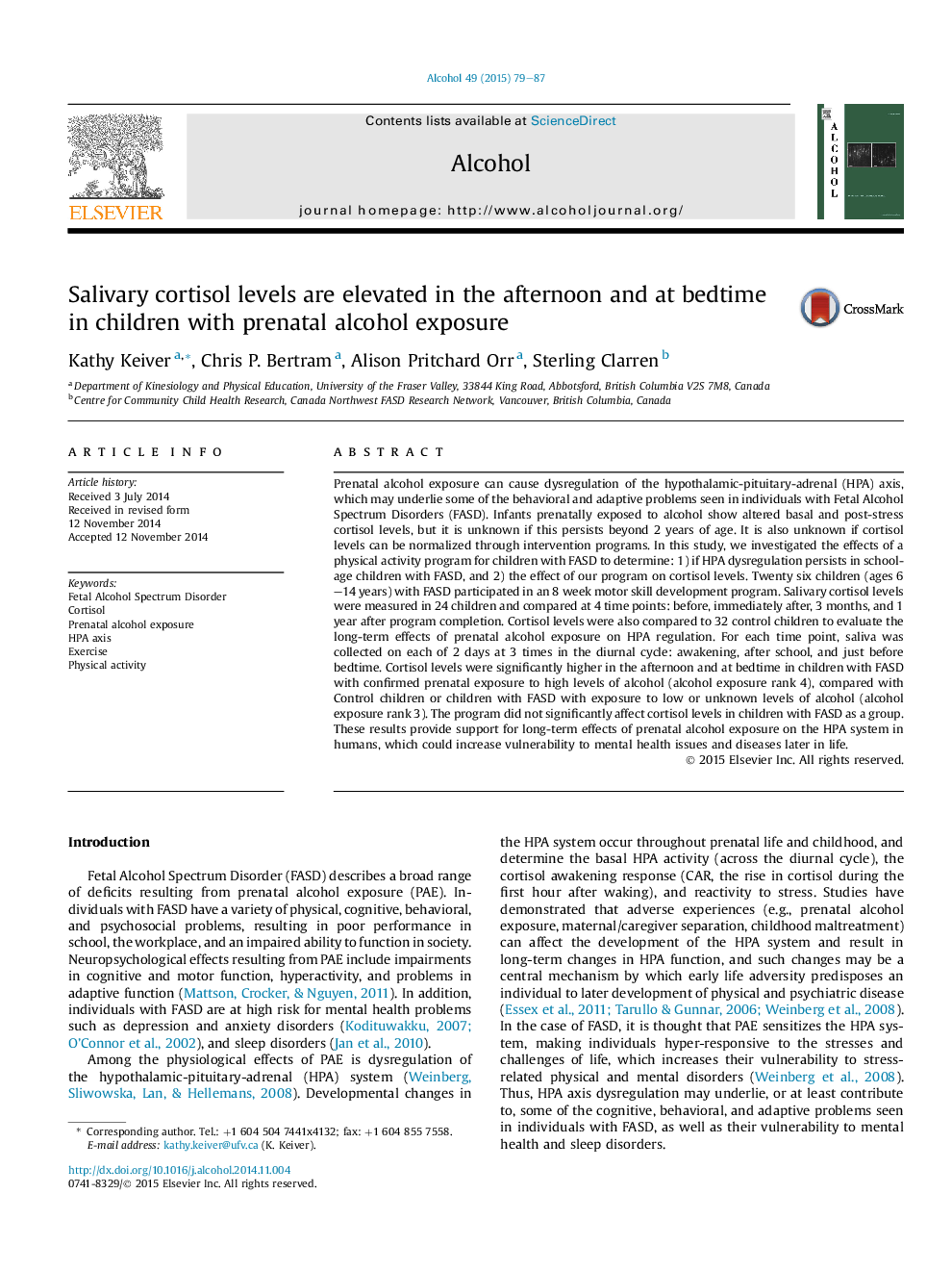| کد مقاله | کد نشریه | سال انتشار | مقاله انگلیسی | نسخه تمام متن |
|---|---|---|---|---|
| 1066924 | 948853 | 2015 | 9 صفحه PDF | دانلود رایگان |
• Animal models show that prenatal alcohol exposure causes HPA axis dysregulation.
• Long-term effects of prenatal alcohol exposure on HPA axis in humans is unknown.
• We investigated cortisol across the diurnal cycle in school-age children with FASD.
• We found differences in cortisol levels in children with FASD compared to Controls.
• Our results support long-term effects of prenatal alcohol on cortisol in humans.
Prenatal alcohol exposure can cause dysregulation of the hypothalamic-pituitary-adrenal (HPA) axis, which may underlie some of the behavioral and adaptive problems seen in individuals with Fetal Alcohol Spectrum Disorders (FASD). Infants prenatally exposed to alcohol show altered basal and post-stress cortisol levels, but it is unknown if this persists beyond 2 years of age. It is also unknown if cortisol levels can be normalized through intervention programs. In this study, we investigated the effects of a physical activity program for children with FASD to determine: 1) if HPA dysregulation persists in school-age children with FASD, and 2) the effect of our program on cortisol levels. Twenty six children (ages 6–14 years) with FASD participated in an 8 week motor skill development program. Salivary cortisol levels were measured in 24 children and compared at 4 time points: before, immediately after, 3 months, and 1 year after program completion. Cortisol levels were also compared to 32 control children to evaluate the long-term effects of prenatal alcohol exposure on HPA regulation. For each time point, saliva was collected on each of 2 days at 3 times in the diurnal cycle: awakening, after school, and just before bedtime. Cortisol levels were significantly higher in the afternoon and at bedtime in children with FASD with confirmed prenatal exposure to high levels of alcohol (alcohol exposure rank 4), compared with Control children or children with FASD with exposure to low or unknown levels of alcohol (alcohol exposure rank 3). The program did not significantly affect cortisol levels in children with FASD as a group. These results provide support for long-term effects of prenatal alcohol exposure on the HPA system in humans, which could increase vulnerability to mental health issues and diseases later in life.
Journal: Alcohol - Volume 49, Issue 1, February 2015, Pages 79–87
